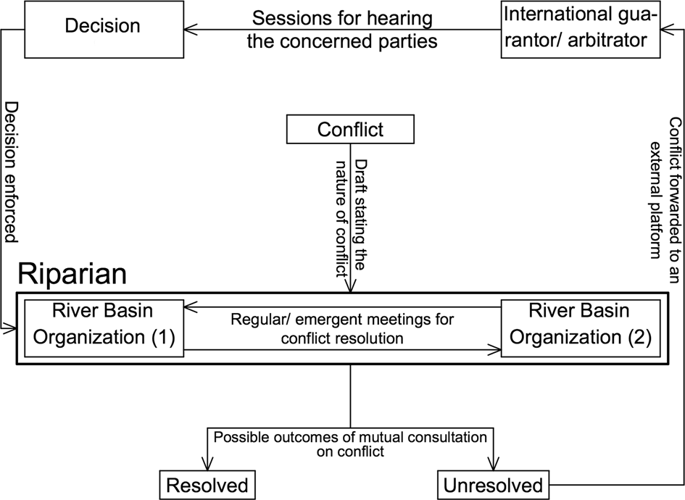npj Clean Water ( IF 10.4 ) Pub Date : 2019-11-05 , DOI: 10.1038/s41545-019-0046-x Muhammad Uzair Qamar , Muhammad Azmat , Pierluigi Claps

|
Water treaties have played an important role in peaceful resolution of water-related conflicts. Although the mode of negotiation to resolve water-related conflicts may vary from treaty to treaty, a number of structural falls make them unprepared for the future needs. The Indus water treaty is perhaps quoted as the most successful water-sharing mechanism in the recent times. Against all odds, the treaty has fulfilled its job descriptions of being a mechanism providing a moderately reliable framework for the peaceful resolution of water-related conflicts. However, the climate change is quickly eroding that trust. The water-sharing mechanism lacks guidelines to cater the issues related to climate change and basin sustainability which require integrated approach for their addressal. But the structural inflexibility does not encourage the riparian to collaborate and build mutual trust for common good. The riparian countries, within the framework of treaty, attempt to elevate their national interests by deliberately refusing to comply with the treaty clauses in letter and spirit, and even manipulate data to deprive the competing riparian of water. We propose and argue on the need of adopting structurally sound forum for solving water conflicts which will assist in comprehensive policy-making to ensure the sustainability of transboundary water resources. The forum will also provide an opportunity for the riparian to work together towards confidence-building through sharing of real-time hydrological data and further scientific analysis based on that. Conclusively, the shortcomings of the present conflict-resolution method are addressed by encouraging riparian to collaborate at various levels.
中文翻译:

跨界《印度河水条约》的陷阱:防止对全球安全造成无人看管的威胁的观点
水条约在和平解决与水有关的冲突中发挥了重要作用。尽管解决水相关冲突的谈判模式可能因条约而异,但由于结构性失误,使它们无法为将来的需求做好准备。印度河水条约也许被认为是最近最成功的水共享机制。千方百计,该条约履行了其职责说明,该机制是为和平解决与水有关的冲突提供适度可靠框架的机制。但是,气候变化正在迅速削弱这种信任。分水机制缺乏指导方针,无法解决与气候变化和流域可持续性有关的问题,而这些问题需要采取综合措施加以解决。但是结构上的僵化并不能鼓励河岸人为了共同利益而合作并建立互信。沿岸国家在条约框架内试图通过刻意拒绝以文字和精神遵守条约条款,甚至操纵数据来剥夺竞争的沿岸人的水,从而提高其国家利益。我们建议并争论是否需要建立结构合理的论坛来解决水冲突,这将有助于全面决策,以确保跨界水资源的可持续性。该论坛还将为河岸提供机会,通过共享实时水文数据并在此基础上进行进一步的科学分析,共同建立信任。最后,











































 京公网安备 11010802027423号
京公网安备 11010802027423号